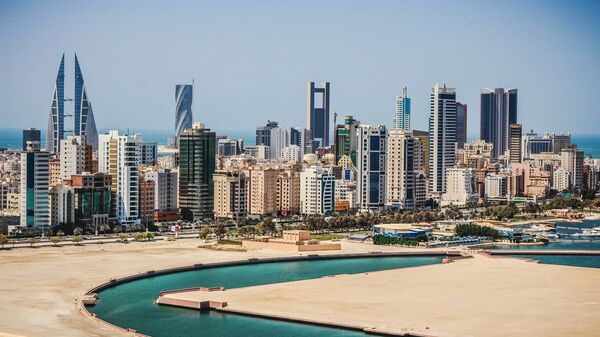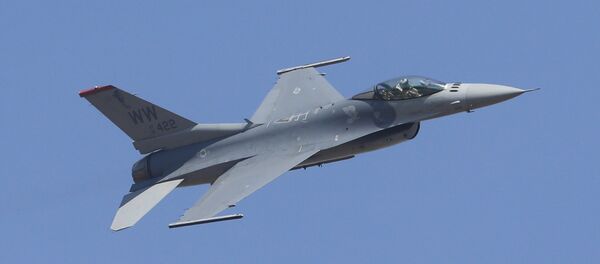In addition to the full might of the US Navy’s Fifth Carrier Group and the British Royal Navy, it’s difficult to fathom how a squadron of F-16s would enhance the island nation’s security, says Massoud Shadjureh, executive director at the Islamic Human Rights Commission.
Becker confirmed that Washington and London’s cooperation with Bahrain “is a geostrategic issue.”
In light of the decisions to scrap the human rights condition of the F-16 deal, ANSWER Coalition director Becker suggested that the approval may be a way for the Trump administration to signal recognition of the oppressive monarchy.
Since taking office, the Trump administration formally put Iran "on notice" before issuing sanctions related to the Iranian Revolutionary Guard’s missile program. Tehran responded with a series of retaliatory sanctions directed against 15 US entities for "supporting terrorism," a charge Iran hawks in Washington often use when demonizing Iran.
The Sunni monarchy cannot get legitimacy from the people living there, Shadjureh notes, and thus its leadership must resort to validation from Washington and London.
Shadjureh is adamant that Bahrain faces no threats from Iran, even suggesting that the Iran-Bahrain dynamic is not what is at stake in regards to the F-16 shipment. “Bahrain will not be attacked,” Shadjureh said.
In January, the UK defense ministry announced the permanent deployment of five ships for to “maintain security and stability in the Gulf." The naval fleet’s immediate presence assists the UK’s interest in "longer term deployments in the Gulf," the UK Defence Journal reported. As previously mentioned, the US fifth carrier strike group represents a formidable presence in ‘maintaining regional security.’
The human rights advocate insisted that many portrayals of the dynamic focus on the wrong groups. “The situation in Bahrain is not between Iran and Bahrain, it’s between the rulers of Bahrain and the overwhelming majority of its citizenry.”



